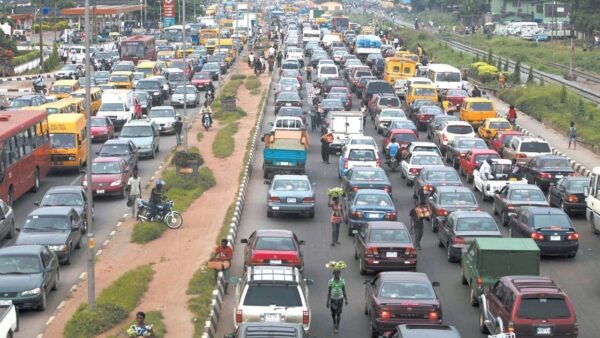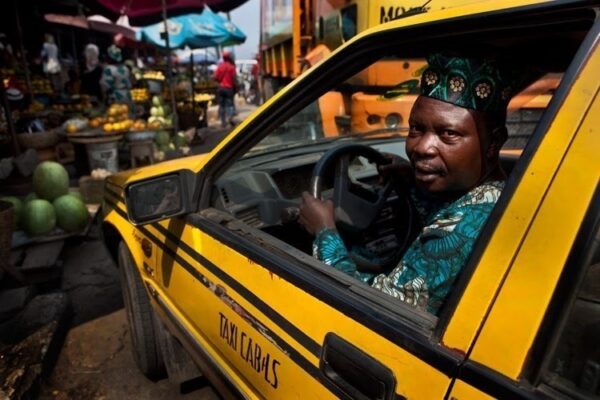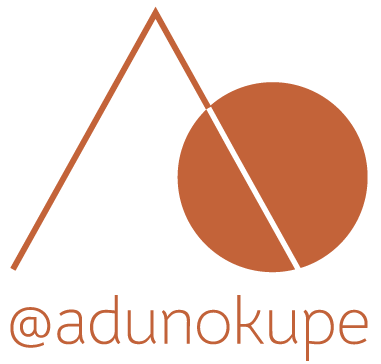What does your driving say about your leadership style?
I was trying to hold a conversation with my new driver just the other day, trying to move a little bit beyond the usual instructions of we need to go here, we need to go there, drive carefully, drive slowly, make sure you indicate with the trafficator where you want to, make sure you give way at roundabouts. I wanted to understand a bit more of the person behind the wheel, who he is, what motivates him, what inspires him, why he does what he does, where does he see himself going, you know, the usual getting to really know you question.
It was not easy trying to hold this conversation, whilst also trying to ensure that he gets me to the destination safely. For some reason, I felt like instructing him countless times was draining, it was better and easier to hold a conversation than to be relegated to the position of commander, where the driver’s only responsibility was to steer the wheel, accelerate, brake and make other maneuvers as required. Directing can be tiring.

Picture of Traffic congestion on Ikeja Along. Source: Guardian.ng
Then it struck me, that in my daily life, meaning outside of the car – to mean at work, it is easy to wear the cloak of leadership, working on research projects, trying to meet deadlines, delegating tasks, the usual. However, and I am sure I am not the only guilty one here ,when we get outside of our ‘role’ we give in to the mentality of the commons. It is much easier, so much easier to let your driver drive you as he – or in the case of the female uber drivers I have had the chance to meet, – or she wishes. Many times, I look in awe at the owner of the car comfortably seated in the owner’s corner wondering how they are able to completely abandon the responsibility for their movement to their driver. And then I concede that life is already hard enough. The days are already long enough. The driver is paid to do his/her work, so long as one gets from A to B, then surely it is all okay?
The same scenario repeated itself when I took a Keke Napep – he could not understand why I did not require him to climb on drain covers trying to navigate Adeola Odeku to get me to Idowu Martins as quickly as possible, so he could pick up the next passenger. But then what was amusing to me was that the journey took considerably longer because of his attempts to overtake at any opportunity – and if he had stayed on one lane, then perhaps he could have gotten me to my destination quicker and less haltingly.
And this is the key – it is not merely a case of getting from A to B, but rather of getting from A to B, safely; and also, trying to ensure that other road users have a pleasant experience of co-sharing the road, co-owning the road,understanding that the road is a shared avenue, regardless of the mode of conveyance, okada, keke napep, Prado, Range Rover, Camry, Corolla or Beetle.
It is this observation that presents to us a good example of the state of self-leadership in Nigeria. If we replicate the scenario above enough times, drivers driving hurriedly without regard for the traffic rules and regulations (and who can blame them, they do not know these rules and regulations – you should have seen the look on my driver’s face when I told him to give way at the roundabout), then we have what we have – chaos, traffic that has no cause, accidents, and in very fatal cases deaths. The sad thing is that all of these are preventable.
We speak about leadership a lot. Everyone has something to say on the state of leadership in Nigeria. However, most of what we say absolves us of any responsibility, placing the blame on the ‘government’, forgetting that, we make up the government, we are the government and it is our responsibility to ensure that we tackle the issues we see around us one after the other, one by one. We are also responsible for our inaction. It is not enough to say that one does not do bad. If one does not do good or correct errors when one can, then one is responsible for the ‘state of Nigeria’.
That said, it is understandable that attempting to address the many issues and challenges can be complex, too complicated, too overwhelming. Where does one start from? How can we progress? What if one does not succeed?

Picture of a Lagos cab driver. Source: Techpoint.Africa
These are valid questions. But one needs to start from somewhere. So, I would like to set a challenge for you this week, if you are driving or being driven, whether in a keke napep, okada, personal car, uber or bolt, shared car or shared bus, try to see if you can be a bit more aware of how your driver is navigating the road, and then another time, try to provide some explanations as to how s/he can be a bit more considerate on the road. Sounds easy enough right?
Imagine if we all did this, just with road transportation, then we see some change, and we have a consciousness and an awareness, and then so on and so on, we move to tackle other challenges as we see them – the ones within our power, the manageable ones – the ones on our streets, the ones about clearing our gutters, desilting our drains, the ones about ensuring our neighborhoods are clean and rodent free, this is self-leadership, community leadership. If we can simply start here, it is a long way from merely complaining, to actually doing something, achieving some small wins, that collectively make seriously big wins.
So, I will leave you with a short quiz, to see what your driving says about you. Good luck!
Short Quiz: What your driving says about you?
1 – Do you have a valid driver’s license/does your driver have a valid license?
a)Yes of course
- b) I think so, somewhere
- c) Who uses the driver’s license anymore?
- d) I don’t have one, I can talk my way through any police checkpoint
2 – Before you (or your driver) head to a destination, do you
- a) like to plan your route and stick to it, sometimes checking google maps to avoid
areas of congestion?
- b) loosely plan your route but you are open to changing it as the road experience
changes?
- c) get into my car and go, you have mental maps and can use them?
- d) feel that traffic is unpredictable – why plan?
3 – When you/your driver gets to the roundabout,
- a) I slow down, checking left and right and ensuring no car is coming
- b) I slow down and then get into the roundabout
- c) I continue driving, concentrating on where I leave the roundabout
- d) I speed up, the first to get there owns the road
4 – When you are driving, and your phone rings, do you
- a) Answer it using your car’s Bluetooth/Bluetooth device or speaker phone?
- b) Check the caller ID briefly and drop the phone – you can attend to it later?
- c) Look around for a LASTMA official and quickly pick up the phone and answer it?
- d) Answer the phone – every call is important.
5 – How aware are you of your car servicing schedule?
- a) It is known to me, my driver, my mechanic – I don’t miss it
- b) Is it usually quarterly or is it twice a year?
- c) Is based on when my mechanic says
- d) Is very flexible, based on when I remember and my bank account
End of quiz! Please tally your scores.
Mostly As
You are trying your best, even in a tough environment, to adhere to the rules because it is important to do so regardless of what everyone else is doing. The challenge is to get you to try to get others to join you, moving towards inspiring them by your actions but also by your words.
Mostly Bs
You are pragmatic. You know what is right, but sometimes, the reality of the environment gets to you. The challenge is to try see how you can move beyond the challenges, to adhering to right, as best as you can. You can do it.
Mostly Cs
You are aware to some extent of what is right and what is wrong, but it is easier to just live your life, no one really gets punished so why hassle yourself? Well, This is true but then imagine if we all did a little bit more to get to a better road network? Try to be a bit more conscious this week.
Mostly Ds
You are driving. You don’t mean to break the rules but to be honest, you don’t always remember what the rules are. And it is easier to act now and apologise later. The challenge for you this week is to see how you can try to be more conscious in your driving, and more in control of your responses to the stimuli around you. Go on – try it!
Dr Adun Okupe is a researcher focused on socio-cultural development in Nigeria. She focuses on leadership as a tool for sustainable development with a sector interest in the cultural and creative industries, and a particular focus on the tourism industry. She is the country investigator for the GLOBE Leadership project which seeks to understand the cultural dimensions of leadership behavior in Nigeria. You may connect with her on @adunova or a.okupe@gmail.com
